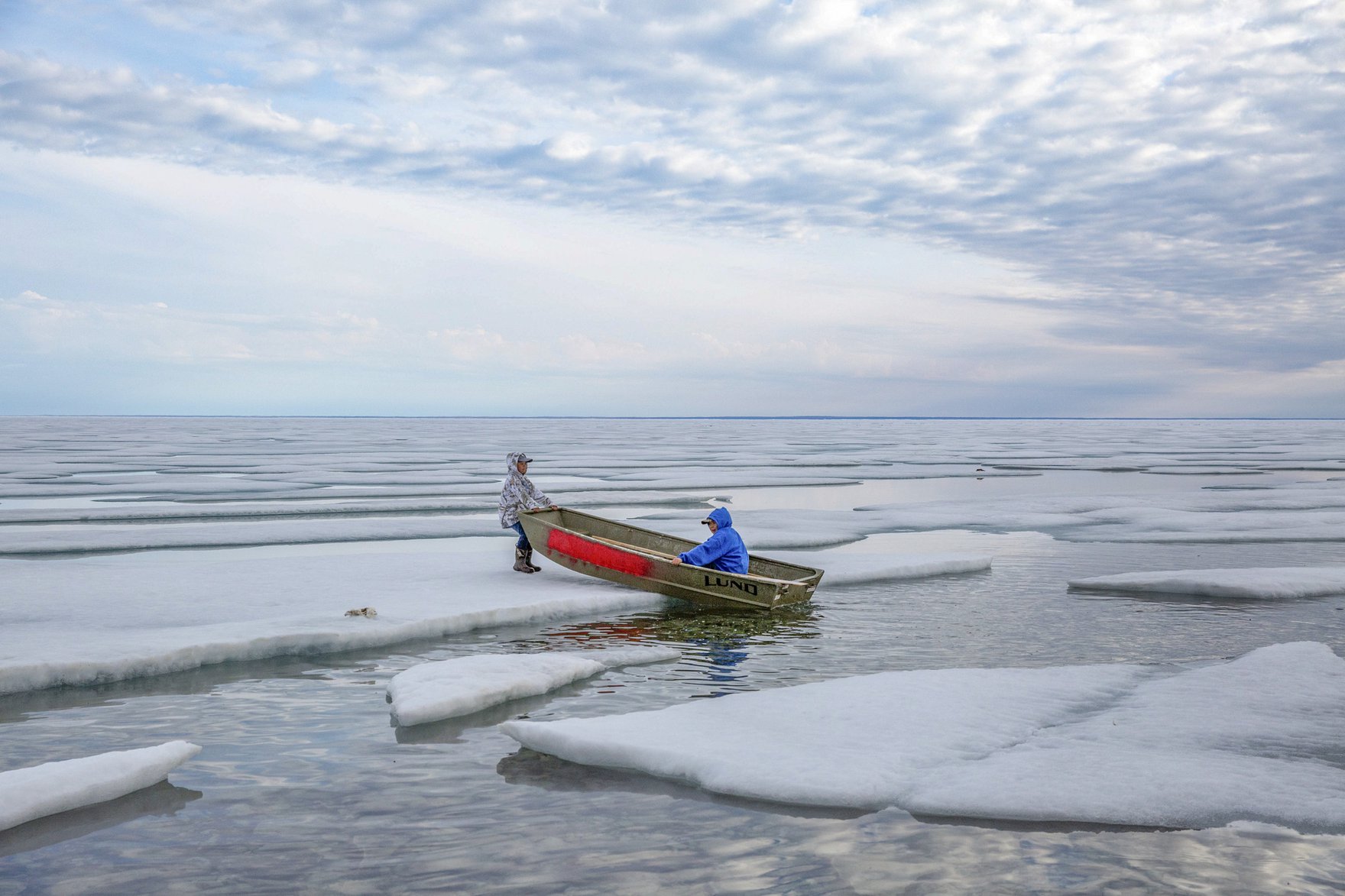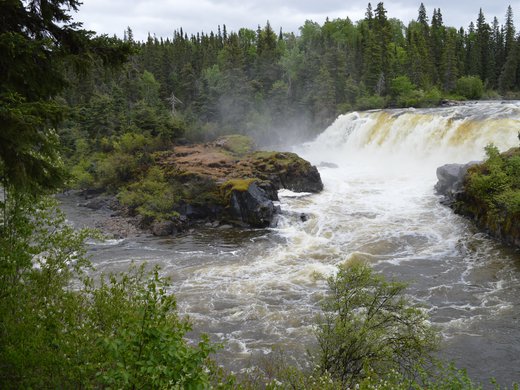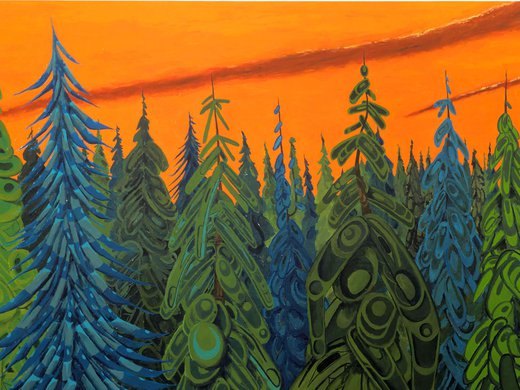From September 12 to 14, international policy makers and climate experts met in San Francisco for the Global Climate Action Summit. The event was intended as a setting for people from around the world to celebrate extraordinary climate action achievements, and to initiate stronger worldwide commitments to accelerate the goals of the Paris Agreement. Sheila Watt-Cloutier, an Inuit environmental and human rights advocate, author of The Right to Be Cold (2015), and Nobel Prize nominee, was among the attendees. In this article, Oonagh Fitzgerald, director of CIGI’s International Law Research Program, talks with Watt-Cloutier about her lifelong advocacy on behalf of Northern peoples, her reflections on the summit and her thoughts about the recent report of the Intergovernmental Panel on Climate Change (IPCC).
This conversation has been lightly edited for clarity and length.
OF: Thank you for making the time for us, Sheila. You were invited to speak at the Global Climate Action Summit in San Francisco; I would love to hear about your experience.
SWC: For me, the summit was fruitful in several ways. I was able to be on a panel called the Ocean-Climate Challenge, which was trying to create new approaches, partnerships and opportunities for people to come together and try to create a better future for the oceans and our climate as a whole. I also took part in an event about climate security issues, but the organizer had reassured me I didn’t have to focus on the international security issues that seem to be the topic of the day. My role was more about highlighting the human security issues of the Arctic. I presented a 10-minute talk and I shared the podium with the likes of Nancy Pelosi, who is the Democratic leader of the US House of Representatives. The conversation really was about how climate has no borders, and how Arctic melt impacts everything from food security to transportation security.
OF: Did you find that Indigenous peoples were well represented at the event?
SWC: I did meet a few people, including the United Nations special rapporteur on the rights of Indigenous peoples. But overall, Indigenous communities weren’t very well represented — I think that issue in itself is something that we should be discussing.
OF: I would think so. In the past, I’ve heard you speak about the experience of being Inuit and living off the land in harmony with nature and how that has changed immensely because of the effects of the warming Arctic.
SWC: Certainly. The warming Arctic isn’t just a discussion for science, economy or wildlife, even though those are all very important. It’s about humans too — not just polar bears and ice.
OF: Can you tell me what you’ve seen change in your environment and the lives of your people?
SWC: We are a people who rely on the cold. For us, the ice and snow is our way of life. That’s what feeds us and sustains us. As hunting, gathering and fishing people, for us, the ice represents mobility and transportation. When the ice doesn’t form firmly enough or quickly enough in the fall and it breaks up early in the spring, then we cannot travel as safely and frequently and we cannot support our families with the highly nutritious food that we rely on in the Arctic.
There are obvious safety concerns, but it’s an economic issue as well. When the journey that hunters used to take to hunt and fish is no longer an option or is too precarious, they have to travel much further and take much longer routes, which costs more money for fuel and supplies.
"The ice is a very big part of our identity. It is our highway and a training ground that allows for us to train our children to become proficient providers and natural conservationists."
And of course, the ice is a very big part of our identity. It is our highway and a training ground that allows for us to train our children to become proficient providers and natural conservationists. But, the effects of colonialism have really negatively impacted the way of life in the Arctic. Communities experience a great deal of poverty and high suicide rates among youth. To me, that kind of trauma mirrors the violence that we are inflicting upon our planet. You can’t separate human trauma and planet trauma; they are one and the same.
OF: In the work CIGI has been doing with Indigenous scholars, I often get the sense that there's a different world view Indigenous people bring to the analysis of the relationship between humans and nature. It seems to be a much more integrated view of the world and I’m wondering how that might help in addressing climate change.
In the recent report that was issued by the IPCC just last week, scientists said that to avoid a scenario of 1.5°C temperature rise above pre-industrial levels, people have about 12 years to start radically changing their behaviour. Yet, we still find many leaders who try to refute the science and lack the political will. The IPCC report specifically notes that education and community approaches informed by Indigenous knowledge could accelerate these necessary behavioural changes. Do you think those very human stories of connection to nature will be the key to making real, lasting climate action?
SWC: I truly believe that. Otherwise, I wouldn’t be doing what I do. We’ve tried economic solutions, and we’ve tried political solutions and frankly, it hasn’t worked very well. We must come to the table not just as politicians or economists or scientists, but as humans, mothers and grandmothers. We need to tell those human stories of the Arctic, and of climate. Indigenous storytelling is going to be the key with which we can change the hearts — not just the minds — of people.
The Paris Agreement is a good example. It is seemingly groundbreaking, but there’s still so much work to be done. It acknowledges in its preamble that climate change is a common concern of humankind and urges states to consider their obligations on human rights and Indigenous peoples — but this language is not stated in the key commitments of the Agreement where it would have more teeth. We have to work exceptionally hard to include such language in all the follow through and implementation of the Agreement.
OF: How can the world engage Indigenous people in a constructive way to raise that awareness about what Indigenous people are seeing in their daily lives; they’re really on the front lines of climate change. As stewards of the land, Indigenous people are much more attuned to what’s happening and according to the IPCC report, they are also more vulnerable to its effects. It seems that the Arctic is something of an early warning system that plays a vital role in the health of the whole planet and humanity.
SWC: Absolutely. I mean, as you know, for many years my work has been signalling to the world that the Arctic is the early warning for the rest of the planet. The connection is very strong and cannot be clearer. The IPCC report emphasizes this and people are starting to see it.
At most conferences on climate change, the image on the slide show is always a polar bear. But at one event in San Francisco, a speaker, a woman who works with the US government, said, “We have been doing the messaging all wrong — it’s not just about science and polar bears, it’s about our grandchildren and their future.” It was very encouraging to hear the words I’ve spoken for the last 20 years echoed in her presentation. It’s a rare occasion to hear someone who is not Indigenous to speak in those terms with a sense of urgency.
OF: What were your biggest takeaways from the Global Climate Action Summit? Did you get the sense that there were important advances made?
SWC: I played a very small role in that summit, but for me, the feedback and the connections that I made were the most valuable. However, summits like this are still operating at a very intellectual level: lots of science and economics, but they need a heartbeat.
"Summits like this are still operating at a very intellectual level: lots of science and economics, but they need a heartbeat."
Indigenous peoples are the ones who are the most marginalized and have the least sophisticated means to adjust and adapt to the changes that are happening, but we are also carrying the brunt of the impacts of climate change. When you put a human face and a heartbeat to the crisis, it helps people to wake up to that reality. That is what I’ve always done in my writing and advocacy work on behalf of Arctic peoples, and that is what I’ll continue to do through the connections that I made at the summit.
OF: What are your next steps? And what would you encourage others — including think tanks like CIGI — to do?
SWC: I’ve always said I appreciate those who choose to support and help bring forward the voices of Indigenous peoples. We don’t want to just be the victim. We know what sustainability is, and because of our connection to all the earth’s natural systems we can make a rich contribution to the high-level talks that need to happen around climate action. We can and should do this from a position of strength and knowledge, not a position of victimhood.
I do think there is room for growth in how foundations and think tanks can support Indigenous people in their initiatives. They can create opportunities for the participation of Indigenous voices, but we need Indigenous-led initiatives as well. We’re not looking for people to solve our problems — we are there to actually guide people who are trying to deal with climate change. We may be the most vulnerable to all of these monumental changes, but we are still a people of great dignity and pride. We have much to offer in understanding the crisis our climate is in, and in offering solutions.



